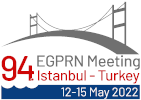Effectiveness and cost-effectiveness of a virtual Community of Practice in the empowerment of patients with ischemic heart disease: An ongoing randomized controlled trial.
Helena Vall Roqué, Débora Koatz, Patricia Cifuentes, Vanesa Ramos, Alexandra Torres, Ana Toledo, Javier García, Valeria Pacheco, Lilisbeth Perestelo-Pérez, Carola Orrego Villagrán, Ana Isabel Gonzalez
Keywords: ischemic heart disease, virtual community of practice, self management, empowerment, randomized controlled trial
Background:
Virtual Communities of Practice (VCoP) offer access to information and exchange possibilities for people in similar situations, which might be especially valuable for the self-management of chronic diseases.
Research questions:
What is the effectiveness and cost-effectiveness of a VCoP regarding activation improvement and other patient-relevant measures in people with a recent diagnosis of ischaemic heart disease (IHD)?
Method:
A pragmatic randomized controlled trial is being performed in Catalonia/Madrid/Canary Islands, Spain. Three-hundred patients with a recent diagnosis of IHD attending participating centres (GP practices/hospitals) are selected/randomized to the intervention/control group to reach the sample size. Intervention group is offered participation for 12 months in a VCoP based on a gamified web 2.0 platform with educational material, plus interaction with other patients and a multidisciplinary professional team. Intervention/control groups are receiving usual care. Primary outcome is measured with Patient Activation Measure (PAM) questionnaire (baseline/six/12/18 months). Secondary outcomes include: clinical variables; adherence to Mediterranean diet (PREDIMED); physical activity (IPAQ), depression (PHQ-9), anxiety (HADS-A); medication adherence (ARMS); quality of life (EQ-5D-5L); health resources use. Data is collected from self-reported questionnaires/electronic medical records.
Results:
One hundred and eighty-one participants (16.5% women, mean age: 58.3, SD: 8.89, age range: 39-81) have been included from June 2021 (60% of the sample size needed), 99 in the intervention and 82 in the control group. Sixty-six participants fulfilled the six-month questionnaires out of 117 that have already been involved in the trial for six months. Results at six-month follow-up will be available at the congress.
Conclusions:
Due to COVID-19 situation recruitment is a major challenge. Participants will be recruited continuously until sample size is achieved to maintain trial integrity/validity. The results of this study will provide evidence on the effectiveness/cost-effectiveness of an alternative way of managing patients with recent diagnosis of IHD by using a VCoP, which could be extended to other chronic patients/settings.
Points for discussion:
How to optimize patient recruitment with the COVID-19 situation
Usefulness of VCoP for IHD and other chronic diseases: strengths and limitations
How to overcome the barriers and limitations that VCoP might pose for people with chronic diseases

